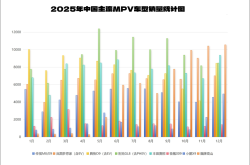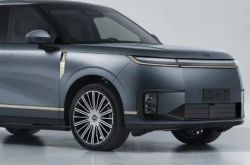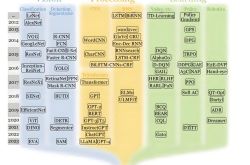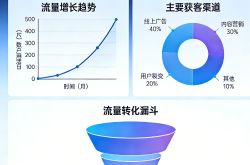?Infineon's Automotive Landscape: From Hardware to Systems
![]() 11/25 2024
11/25 2024
![]() 447
447
Produced by Zhineng Zhixin
Against the backdrop of the global automotive industry's transition towards electrification, intelligence, and connectivity, semiconductors have emerged as the core technological driver of this transformation.
Infineon's automotive business continues to grow rapidly, with fiscal year 2024 revenues exceeding €8.4 billion, accounting for 56% of the company's total revenue.
Through a broad product portfolio, cutting-edge technological innovations, and deep customer collaborations, Infineon has not only consolidated its leadership in electric vehicles and intelligent driving but also plays a pivotal role in driving the transformation of software-defined vehicles and electronic-electric (E/E) architectures.
Drawing from its outlook, we delve into Infineon's business performance, technological advantages, and market trends to provide an in-depth analysis of its global strategy and challenges in the automotive semiconductor sector, offering a unique perspective on the future development of the automotive industry.
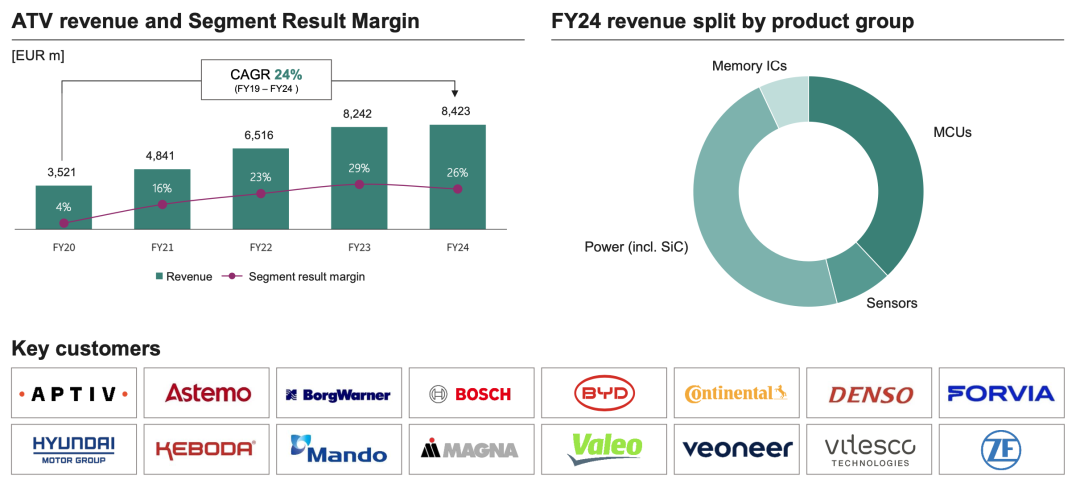
Part 1
Core Drivers of Infineon's Automotive Business
Infineon's Automotive Business (ATV) has achieved a high-speed growth rate of 24% CAGR over the past five years, with fiscal year 2024 revenues reaching €8.423 billion, accounting for over half of the company's total revenue. This reflects the thriving electric vehicle market and Infineon's dominant market position in key technology areas.
With a profit margin of up to 29% in niche markets, ATV demonstrates robust profitability. Despite the complex and uncertain global macroeconomic environment, Infineon maintains steady quarterly growth. Its fourth-quarter revenues reached €2.149 billion, a year-on-year increase of 2%, indicating strong demand resilience for its products.
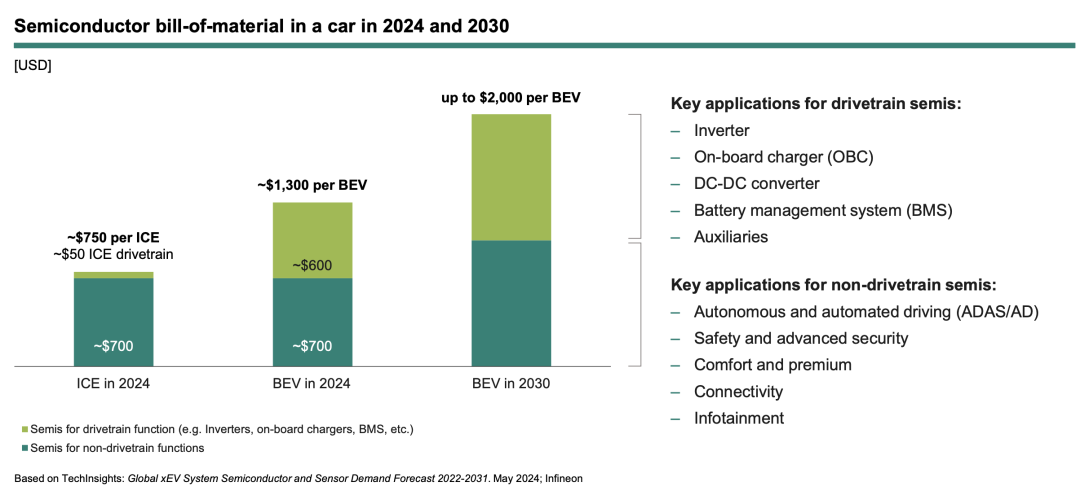
Infineon's products span multiple areas, from power semiconductors (including Silicon Carbide, SiC) to microcontrollers (MCUs), sensors, and memory integrated circuits.
SiC technology offers significant performance advantages in electric vehicle power drive systems. MCUs, as the core of automotive electronic control units (ECUs), support a wide range of applications including body control, power systems, and ADAS.
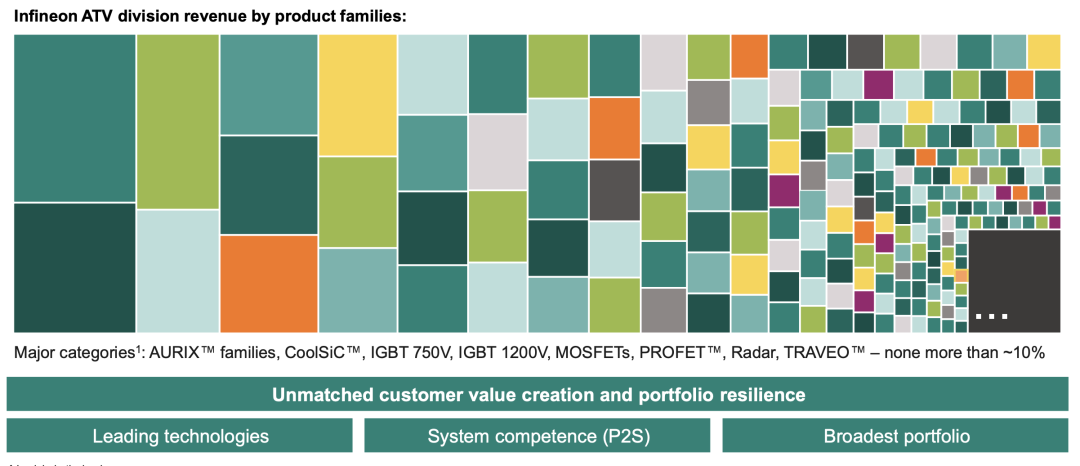
Sensor technology provides reliable support for environmental perception and safety functions. Infineon's customer base includes almost all major automakers, ranging from traditional automakers like Bosch and Continental to emerging electric vehicle manufacturers like BYD.
This diverse customer base not only solidifies Infineon's market position but also drives its growth in the new energy vehicle market. Infineon has become a preferred supplier for many core components, deeply embedded in customers' value chains through technological advantages and long-term collaborations.
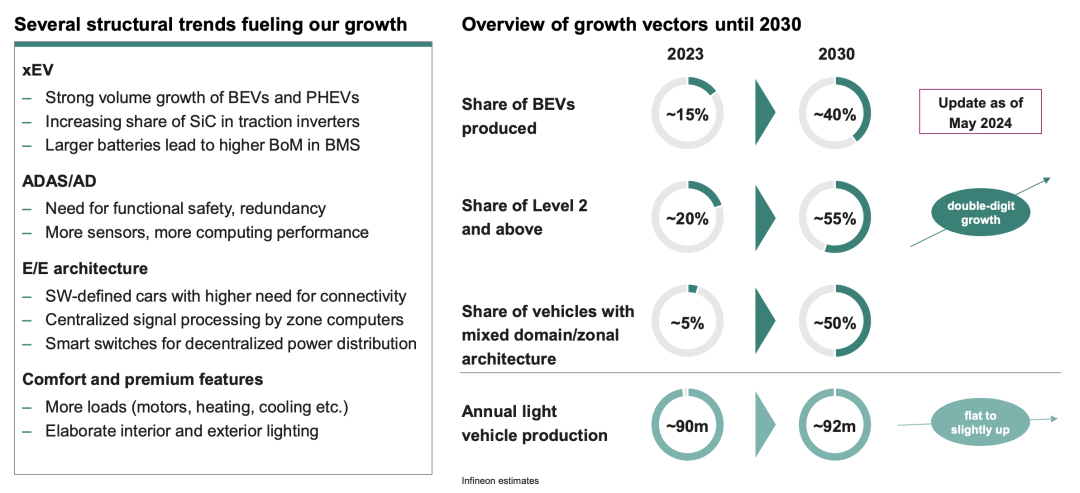
Part 2
Automotive Market Trends and Technology Outlook
● Market Opportunities in Electrification
The rapid adoption of electric vehicles is one of the most significant factors driving Infineon's growth. In 2024, China's new energy vehicle (NEV) market continued to expand, significantly leading the global market share. Meanwhile, policy incentives and infrastructure upgrades in Europe and North America have also boosted the penetration of battery electric vehicles (BEVs) and plug-in hybrid electric vehicles (PHEVs).
The widespread adoption of SiC technology will continue to be a crucial engine for Infineon's future growth. Compared to traditional silicon materials, SiC offers higher efficiency and durability, particularly in key systems like traction inverters and on-board chargers. Infineon's leading 200mm SiC power wafer manufacturing technology has become a core competitive advantage in the market.
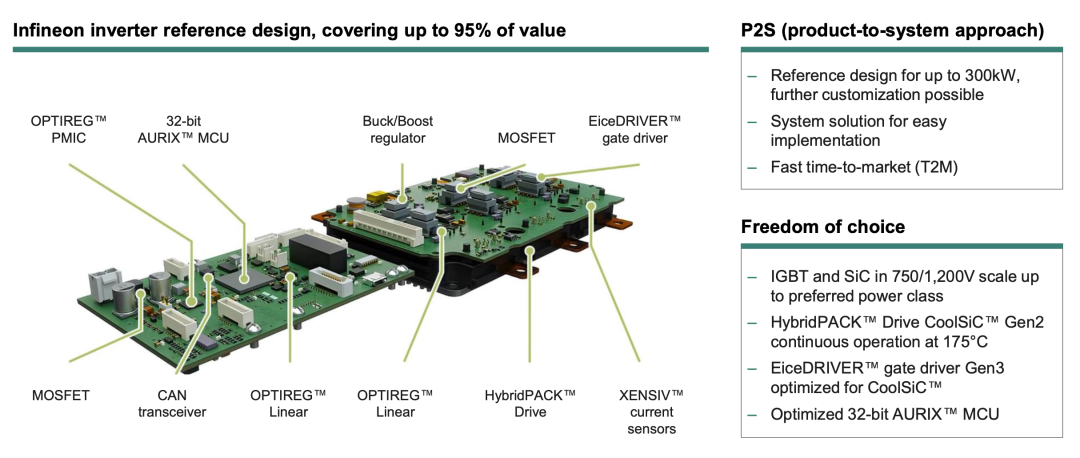
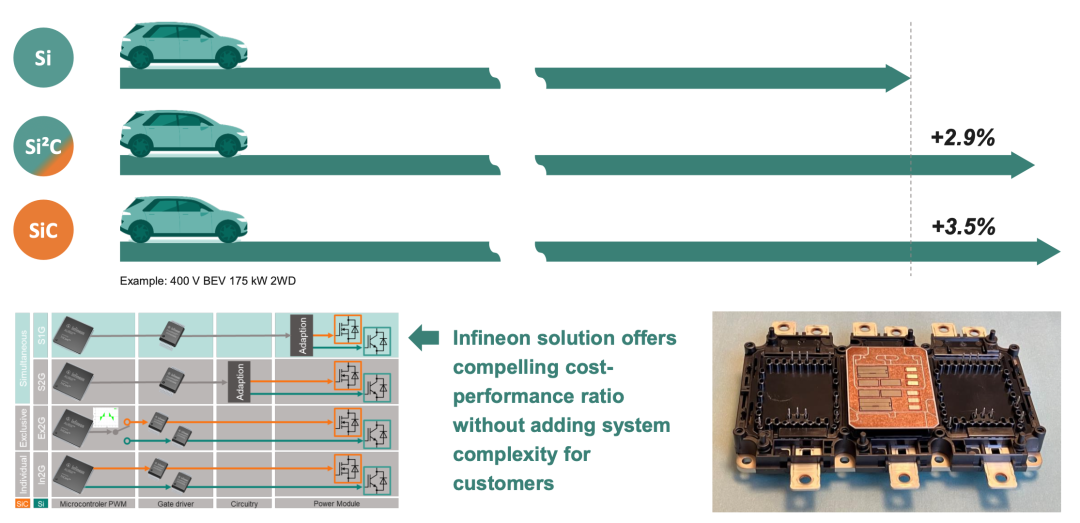
● The Wave of Software-Defined Vehicles
The automotive industry's transition towards software-defined vehicles (SDVs) has surged the demand for computational performance, connectivity, and security.
Infineon's AURIX TC4x MCU, with its architecture integrating parallel processing units (PPU), provides more efficient computational support for ADAS and autonomous driving. Furthermore, its comprehensive system solutions further help automakers shorten development cycles and enhance vehicle performance.
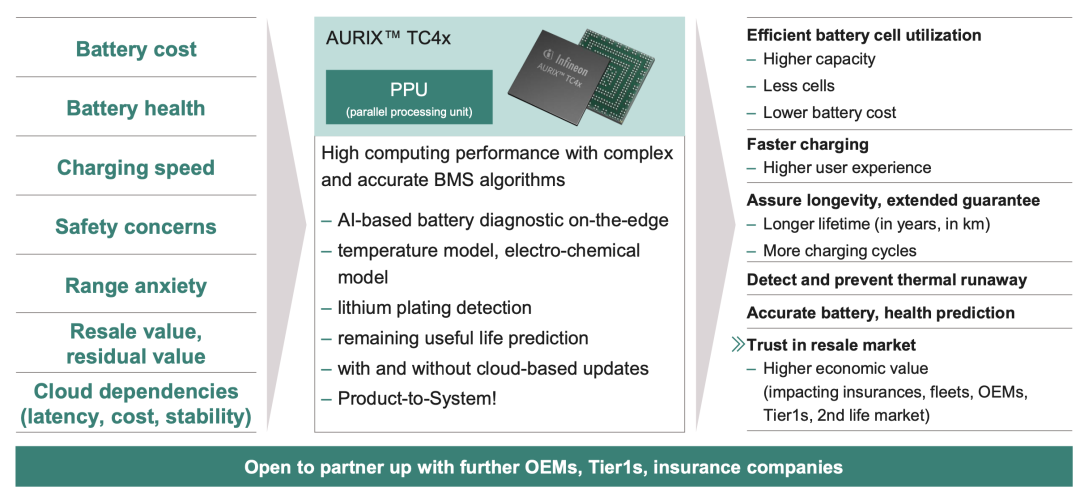

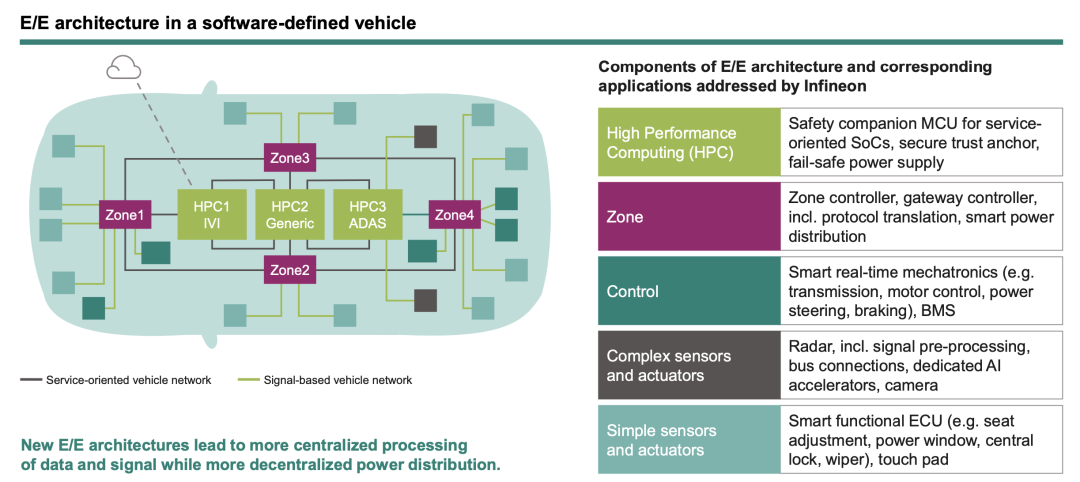
In terms of collaborations, Infineon and Marelli jointly develop advanced automotive E/E architecture solutions, leveraging Infineon's latest AURIX TC4x MCU to co-develop zone control units (ZCU). The AURIX TC4x series, specifically designed for the new generation of E/E architectures, supports high-speed communication interfaces, providing high performance and flexibility.
By using AURIX TC4x, Marelli's ZCU platform offers the following key features:
◎ Data Routing Engine: Ensures low-latency communication, enhancing data transmission efficiency.
◎ Hypervisor Integration: Supports independent software updates, ensuring vehicles always have the latest features.
◎ Lighting Control Software Integration: Integrates advanced lighting control systems into ZCU, paving the way for future MCU-less lighting solutions.
AURIX TC4x also offers robust security features, compliant with ISO/SAE 21434 standards, supporting the development of software-defined vehicles.
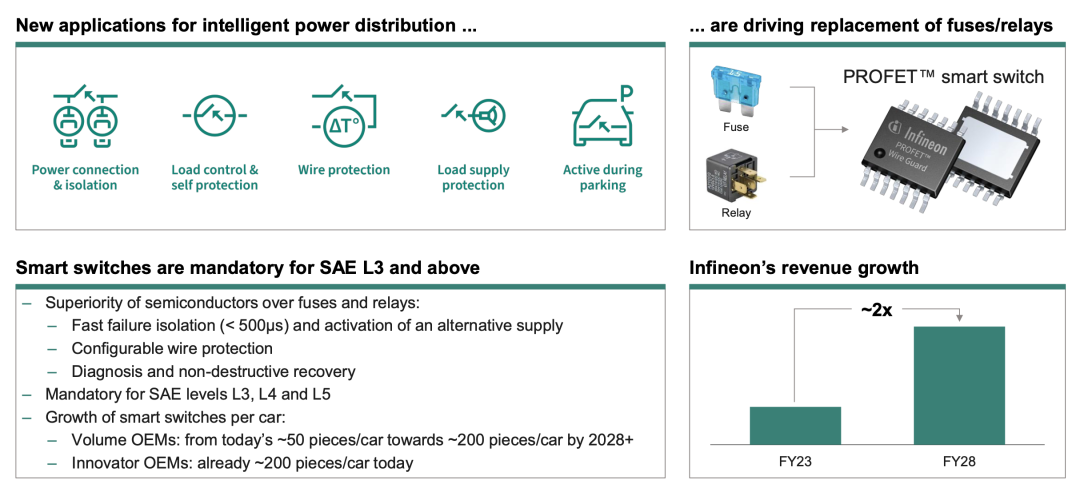
● Technological Breakthroughs and Ecosystem Collaboration
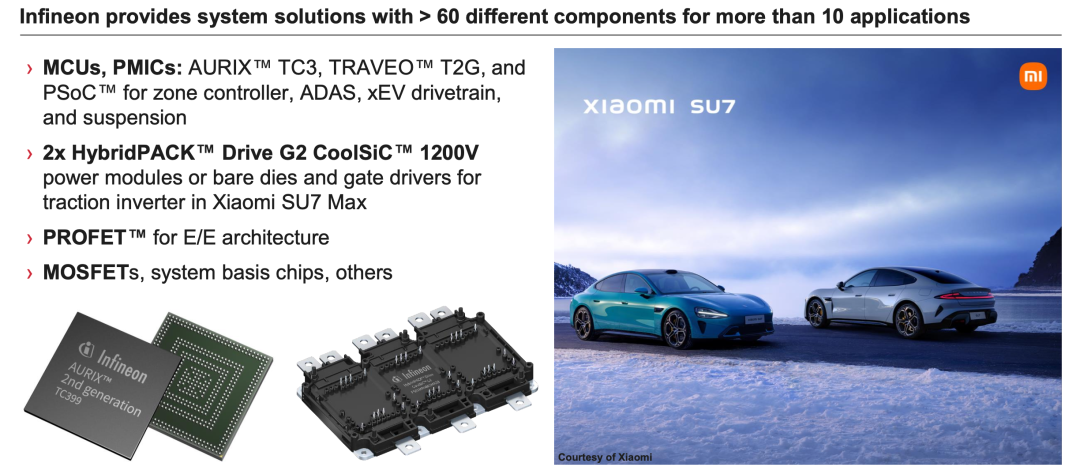
Through innovation and ecosystem collaboration, Infineon continuously consolidates its technological leadership. For example, its collaboration with Stellantis applies CoolSiC power devices to efficient power systems, while its solutions for Xiaomi's SU7 Max project provide comprehensive support from drive systems to ADAS, showcasing its strengths in system integration and rapid response capabilities.
Infineon's Si/SiC fusion module (Si2C) is expected to further enhance the cost-effectiveness of electric vehicles while maintaining high performance and efficiency, creating greater value for customers.
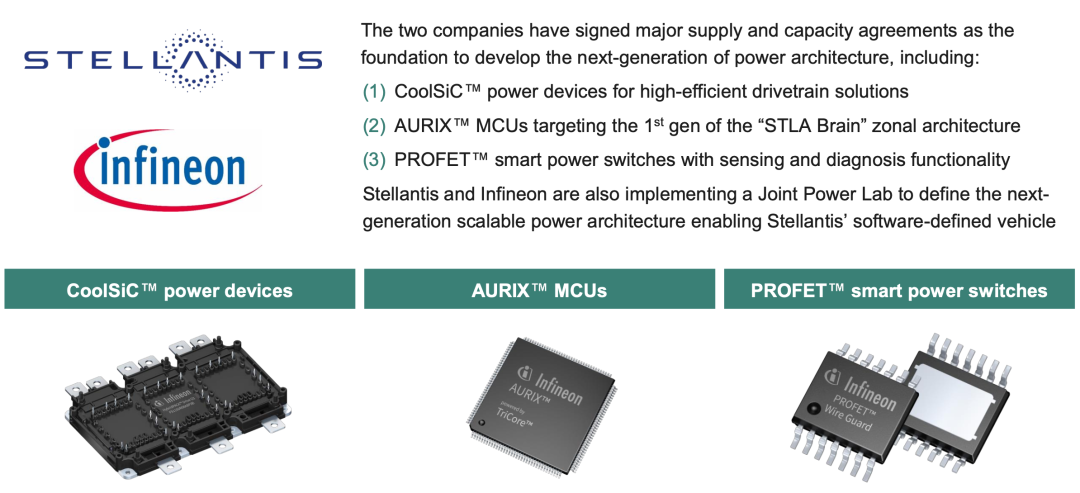
Infineon holds a prominent position in the global automotive semiconductor industry, leveraging its technological, market, and ecosystem advantages to expand its influence amidst the waves of electrification, intelligence, and software-defined vehicles.
Despite persistent macroeconomic and competitive challenges, Infineon demonstrates strong potential for long-term growth through innovation-driven strategies, deep customer collaborations, and strategic foresight.
Summary
Zhineng Zhixin believes that future changes in the automotive industry will increasingly rely on breakthroughs in semiconductor technology. Keeping an eye on Infineon's performance in the automotive sector is crucial for observing changes in the automotive industry from the semiconductor perspective!


